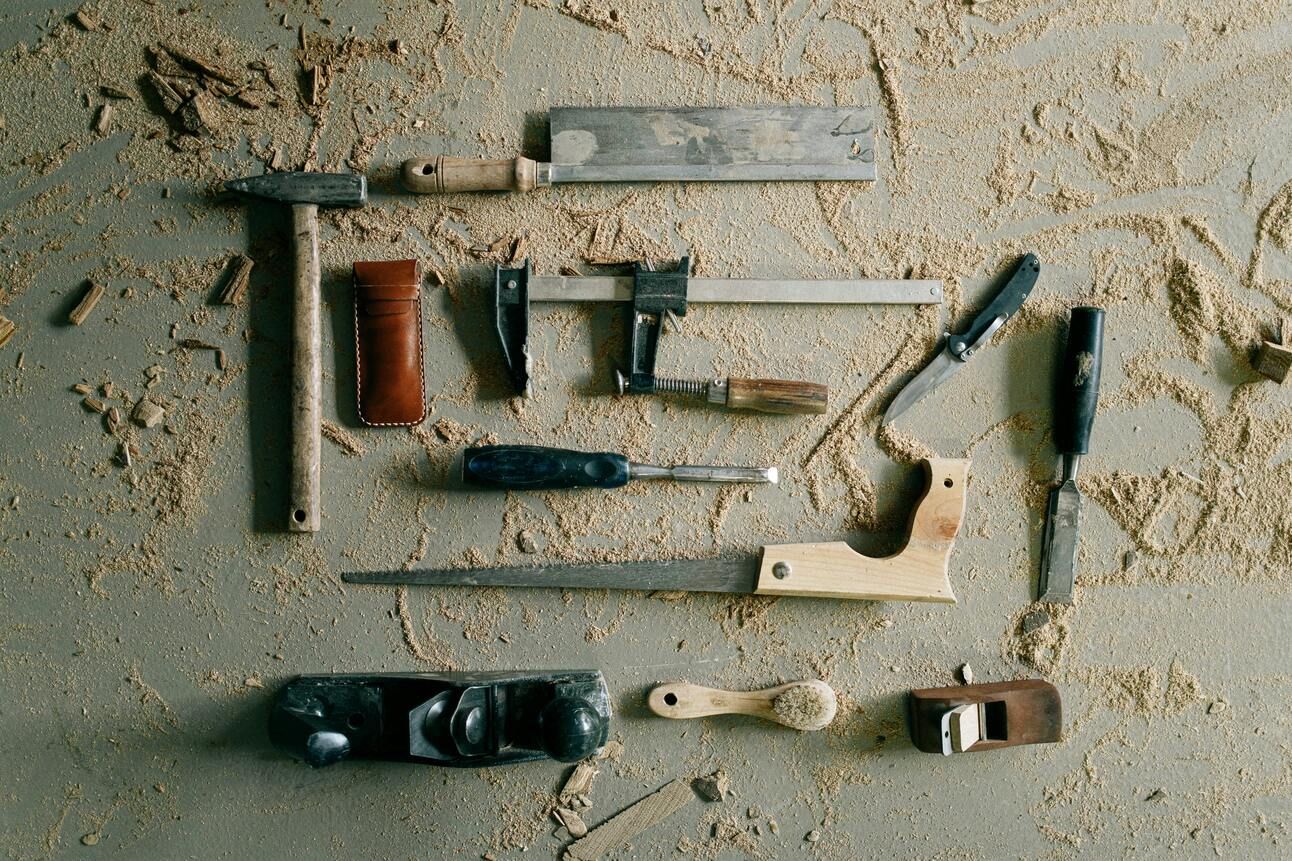Hand tools have been an integral part of woodworking for centuries, embodying precision, skill, and tradition. In a world dominated by power tools, hand tools hold a special place for artisans who value craftsmanship and the tactile connection to their work.
This comprehensive guide explores the significance, types, and techniques associated with hand tools, emphasizing their enduring importance in modern woodworking.
1. Why Hand Tools Matter
Hand tools offer precision and control that power tools often cannot replicate. They allow artisans to:
Achieve intricate details with finesse.
Work quietly without noise pollution.
Maintain a physical connection to the material, fostering creativity and mindfulness.
Research shows that using traditional tools enhances the cognitive and motor skills of craftsmen, contributing to their well-being (Smith, 2018).
2. Essential Hand Tools for Every Woodworker
The right tools form the backbone of a woodworker's workshop. Key categories include:
Cutting Tools
Handsaws: Rip, crosscut, and dovetail saws for versatile cuts.
Chisels: Essential for carving and joinery.
Measuring and Marking Tools
Combination Square: For precise angles and measurements.
Marking Gauge: Ensures consistent and accurate markings.
Shaping Tools
Planes: Smoothen surfaces and shape edges with block and jack planes.
Spokeshaves: Ideal for curved surfaces.
Assembly Tools
Mallets and Hammers: For driving nails or assembling joints.
Clamps: Hold pieces securely during assembly.
3. Techniques for Using Hand Tools Effectively
To maximize the potential of hand tools, woodworkers must:
Choose Quality Tools: Durable and ergonomic designs last longer and reduce fatigue.
Maintain Tools: Regular sharpening and cleaning ensure peak performance.
Master Proper Techniques: Learning proper sawing, chiseling, and planing techniques enhances precision.
Studies suggest that novice woodworkers benefit greatly from mastering hand tools before transitioning to power tools (Johnson & Lee, 2020).
4. Advantages Over Power Tools
While power tools are efficient, hand tools provide:
Precision: Delicate cuts and intricate details.
Portability: No reliance on electricity.
Versatility: Adaptability across diverse tasks.
5. Challenges and Overcoming Them
Mastering hand tools requires patience and practice. Many beginners face challenges like improper grip or inconsistent strokes. Resources like Working with Hand Tools: Ultimate Woodworker's Guide offer step-by-step instructions to overcome these hurdles.
Master Hand Tools with Ease
Ready to elevate your woodworking skills? Download your copy of Working with Hand Tools: Ultimate Woodworker's Guide today!
This comprehensive guide features:
Step-by-step tutorials on tool usage and maintenance.
Expert tips to enhance precision and efficiency.
Projects to practice and perfect your skills.
References
Johnson, R., & Lee, M. (2020). Woodworking foundations: A beginner’s guide. Craftman Press.
Smith, A. (2018). The psychology of craftsmanship. Artisan Studies Journal, 12(3), 45-60.

